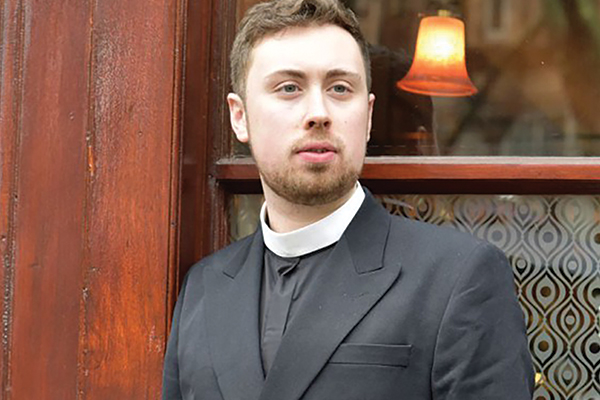Fergus Butler-Gallie suggests that humour is serious business for the Church.
åWhere have all the jokers gone? Christianity used to be full of them. Now, I don’t mean parish priests making ill-advised gags at the start of homilies, nor do I mean crackers of insider, churchy jokes, with punchlines only coherent to an elect. I mean those figures – clergy and laity – whose senses of humour arose specifically from their faith. From Dr Johnson to G. K. Chesterton, St Basil the Holy Fool to Sydney Smith – they transcended eras and denominations. They were the funniest figures of their generations, their jokes still known and repeated today: yet all of their humour had Christianity at its core.
You might have thought that the changes wrought across global Christianity over the previous half century or so would be conducive to the raising up of jokers. Surely our departure from a world of clerical thought police, enforcing a pantomime conservatism, would be a good thing for jokers of all faiths? Yet Rabelais, a monk, wrote under the threat of the Inquisition, Dr Swift, a dean, wrote whilst in religio-political exile and both of them wrote better (and more theologically informed) jokes than anyone knocking about today. In fact, in my anecdotal experience, it is liberal Christians (of all denominations) who today seem most likely to chastise those who would make light of the human condition – perhaps because they buy, ironically, into a Hobbesian view of humour: that it must arise from a feeling of superiority over another, and so is therefore necessarily unchristian. Perhaps it is because they are now in positions of power across many Churches, where jokes are more dangerous than on the edges.
The reality is, of course, that Christianity has long understood a part of the beatific vision to entail exactly that – from Dives and Lazarus in Luke 16 to Aquinas’s assertation that the saints look upon the condemned ‘so that their beautitude may be more pleasing to them’. Yet I would suggest that this – so distasteful to modern sensibilities – comes not from an outmoded theology of superiority but from a supremely relevant, although also deep and ancient, anthropology of folly. We know that this world can be preposterous and monstrous in equal measure and that this is in stark contrast to the world as envisioned by the Kingdom of God – so why not say so? Put another way, the Church has a crucial ministry in pointing out the ridiculousness of a world that increasingly views the here and now as the be all and end all. Humour, I would suggest, has long proved to be a more effective weapon in the arsenal of that ministry that pious pomposity.
I think, I hope, that there is a distinctly Christian sense of humour that avoids the potential hubris of the elect chuckling at the expense of the damned. To acknowledge the folly and ridiculousness of the human condition on account of its humanity is both levelling – for the potentate or president or pope is just as much as an erring and straying lost sheep as the pimp or prostitute or peasant – and also the first step towards reconciliation. It’s also the root of much humour – from Dr Swift to Basil Fawlty. If we insist on taking ourselves or our human nature seriously, we are less likely to see that we are fallible and our nature is fallen. We are, in turn, then less likely to seek conciliation with Christ. In short, laughter and liberation – true liberation, to quote Aquinas again, ‘endless length of days … in our true native land’ – start from the same source. If Christianity wants to rediscover its rich sense of humour again, then I can think of worse places to start.
Fergus Butler-Gallie is an Anglican clergyman who has served in London and Liverpool and the author of A Field Guide to the English Clergy and Priests de la Resistance! The loose canons who fought Fascism in the twentieth century.



 Loading ...
Loading ...
What do you think?
You can post as a subscriber user ...
User comments (0)